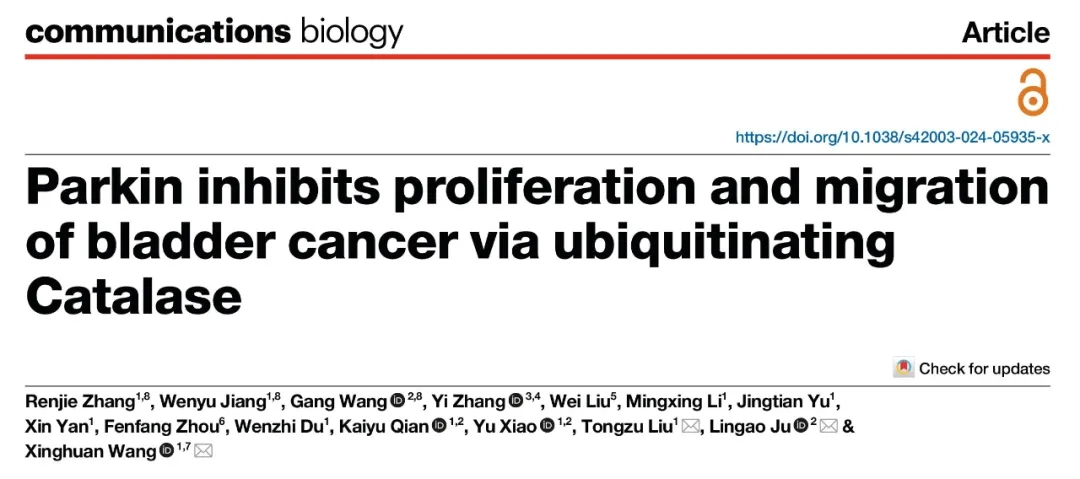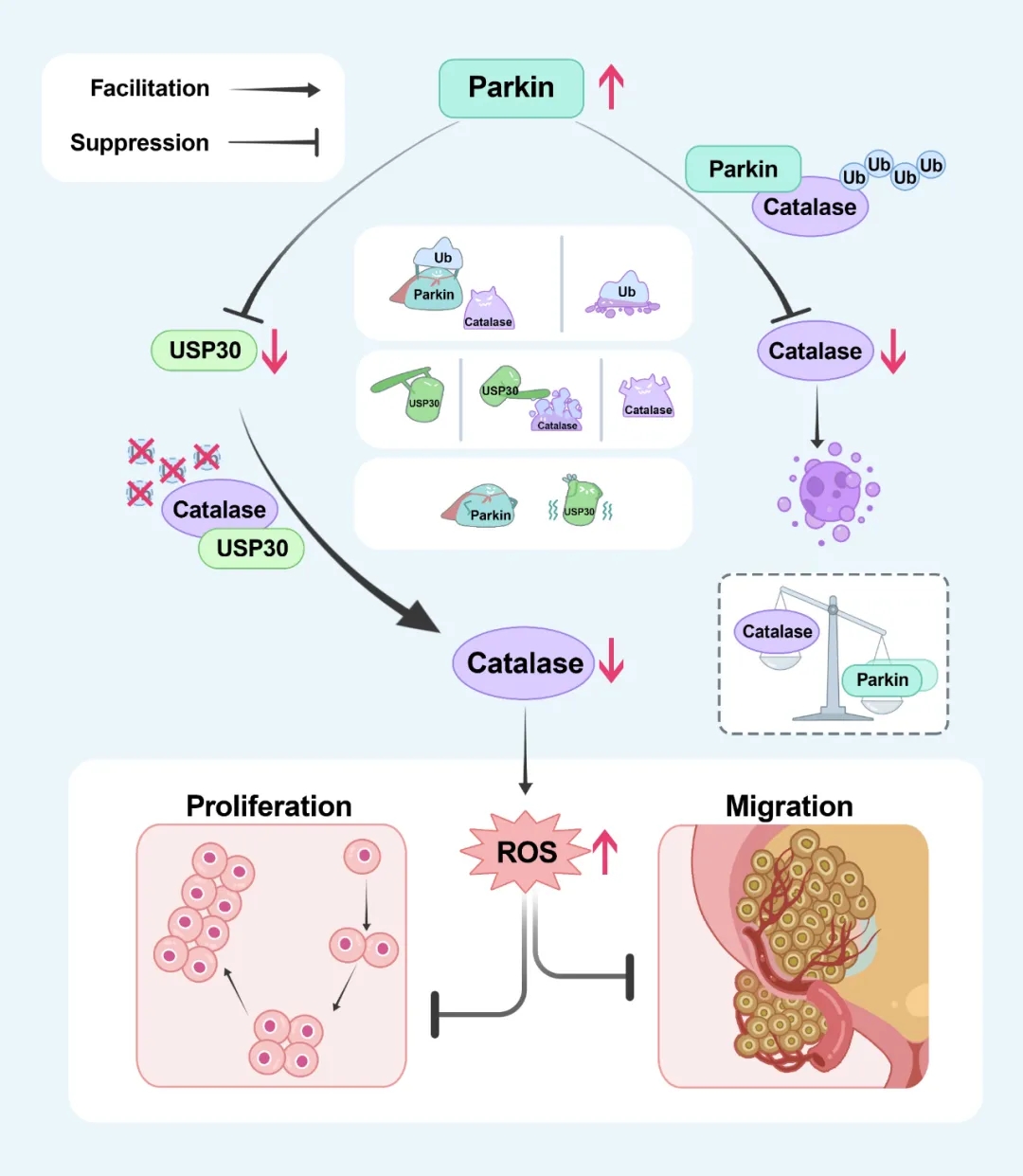

On February 29, 2024, Professor Wang Xinghuan's team from Zhongnan Hospital of Wuhan University published the latest research findings titled "Parkin inhibitors promotion and migration of bladderer cancer via ubiquitinating catalogue"[1] in Communications Biology (top of the first district of the Chinese Academy of Sciences). This study found that Parkin can regulate the redox homeostasis in bladder cancer cells through a non-autophagic pathway, thereby affecting the proliferation and migration of bladder cancer cells, providing a new understanding of Parkin's anti-tumor role in bladder cancer.

The previous sequencing results of the research group showed that Parkin mutation and low expression existed in bladder cancer tissue. Further analysis of public databases and several clinical bladder cancer tissue samples showed that the expression level of Parkin was closely related to the poor prognosis of patients with bladder cancer.
This study first verified Parkin's inhibitory effect on the proliferation and migration of bladder cancer cells through cell experiments. Considering that Parkin is an important molecule in the classic mitochondrial autophagy process, the research team discussed whether the influence of Parkin on the biological behavior of bladder cancer cells involves autophagy mechanism. Through a series of experiments, it has been confirmed that upregulation of Parkin does not significantly enhance the autophagy process. Further research shows that the change of intracellular reactive oxygen species (ROS) level is the key factor for Parkin to inhibit the proliferation and migration of bladder cancer cells. Mechanism research has found that, Parkin promotes the degradation of Catalase by increasing its ubiquitination level. In addition, USP30 can stabilize Catalase through deubiquitination, while Parkin can degrade USP30 through ubiquitination. Parkin ultimately reduces the level of Catalase through these two aspects, thus increasing the content of ROS in cells, inducing cell cycle arrest, and inhibiting the proliferation and metastasis of bladder cancer cells.

In summary, this study not only clarified the role of Parkin as a cancer suppressant in bladder cancer and its mechanism of action, but also expanded the biological function of Parkin in the non-autophagy field, providing new ideas for understanding the role of oxidative stress in the occurrence and development of bladder cancer. This work suggests that targeting the Parkin-USP30-Catalase pathway could be a novel molecular therapy strategy for bladder cancer. The first author of this paper is Zhang Renjie, a doctoral student in the Department of Urology at Zhongnan Hospital of Wuhan University. This study received research funding support from the National Natural Science Foundation of China, the Zhongnan Hospital Research Fund of Wuhan University, and the Huanghe Talent Program.
References:
[1] Zhang R, Jiang W, Wang G, et al. Parkin inhibits proliferation and migration of bladder cancer via ubiquitinating Catalase. Commun Biol. 2024 Feb 29;7(1):245. doi: 10.1038/s42003-024-05935-x.
Links:
https://www.nature.com/articles/s42003-024-05935-x